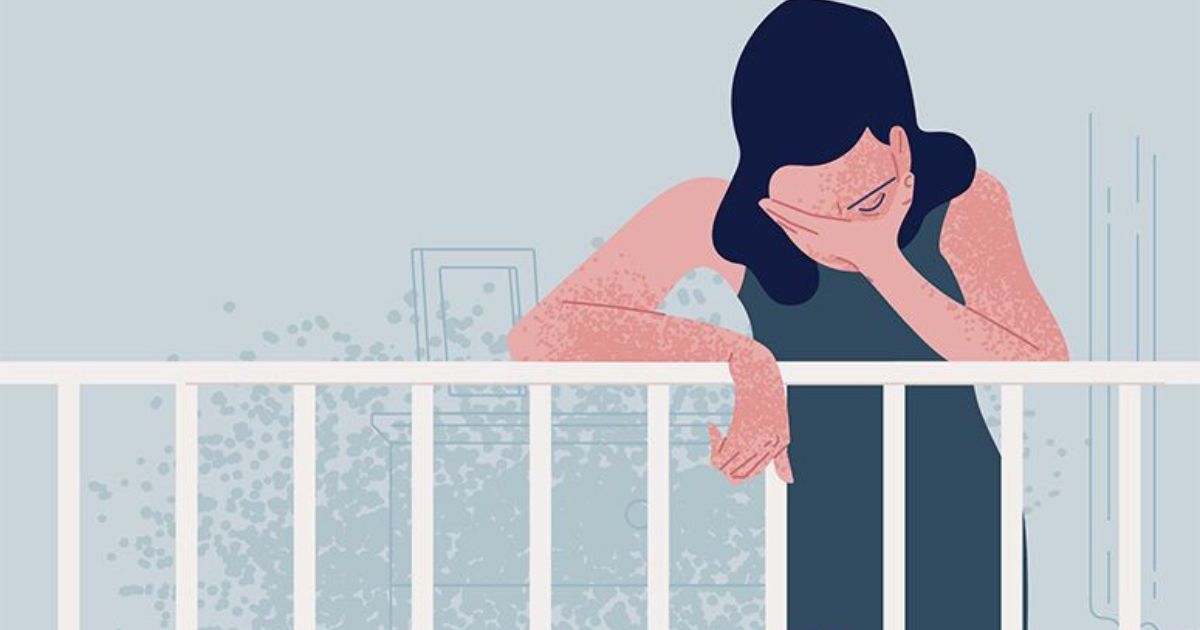New mothers grappling with postpartum depression might find solace in a surprising revelation: a potential silver lining for their child’s developmental journey.
Recent research indicates that taking selective serotonin reuptake inhibitors (SSRIs), a class of antidepressants could have positive implications for a child’s behavior even up to five years after birth.
This groundbreaking study emerged from a collaborative effort between the Institute of Psychiatry, Psychology & Neuroscience at King’s College London and the University of Oslo in Norway.
The research team delved into a vast pool of data, encompassing over 61,000 mothers and their offspring who were enlisted during pregnancy as part of the Norwegian Mother, Father and Child Cohort Study.
Study Sheds Light On Postpartum Depression And Child’s Growth
The study’s focus on the interplay between a mother’s use of SSRIs to combat postpartum depression and the long-term impact on her child’s behavior highlights an underexplored facet of mental health treatment.
The findings illuminate a potential link between maternal well-being and its ripple effects on the child’s development, shedding light on a hitherto uncharted territory.
Postpartum depression, a condition that affects numerous new mothers globally, has long been a concern not only for maternal mental health but also for its potential impact on the child’s emotional and psychological growth.
The study’s results offer a glimmer of hope by suggesting that addressing the mother’s mental health can potentially have far-reaching positive implications.
The collaboration spanned across borders, with researchers meticulously sifting through a treasure trove of data from the Norwegian cohort study. This comprehensive approach ensured a robust and multifaceted analysis, providing a panoramic view of the dynamics at play.
By examining the experiences of over 61,000 mothers and their children, the study transcends the boundaries of individual anecdotes, paving the way for more generalized insights.
The concept of a mother’s mental well-being influencing her child’s development isn’t entirely new, but the study delves deeper into the intricacies.
The research team navigated the nuanced terrain of postpartum depression treatment, particularly the use of SSRIs, to unravel potential correlations with long-term behavioral outcomes in children.
This multidimensional exploration adds depth to our understanding of mental health’s impact on the broader family unit.
The study’s implications carry significance for both medical practitioners and new mothers alike.
As postpartum depression continues to be a prevailing concern, the research suggests that addressing maternal mental health with appropriate interventions might have a cascading effect, fostering healthier emotional landscapes for both mothers and their children.
It’s important to note that the study doesn’t merely endorse the indiscriminate use of antidepressants during the postpartum period.
Rather, it underscores the need for a holistic approach to maternal mental health, recognizing that addressing the underlying causes of postpartum depression could potentially lead to benefits for both the mother and the child.
As this pioneering research shines a light on the intricate connections between maternal mental health and child development, it calls for a broader conversation about postpartum depression and its far-reaching implications.
Beyond its immediate impact on maternal well-being, postpartum depression’s effects can extend into the realm of family dynamics and the next generation’s emotional resilience.
In a world where mental health awareness is gaining momentum, this study adds a new layer of understanding to the complex web of human experiences.
It serves as a reminder that the threads of mental health weave through generations, emphasizing the need for comprehensive and compassionate support systems that prioritize the well-being of both mothers and their children.


